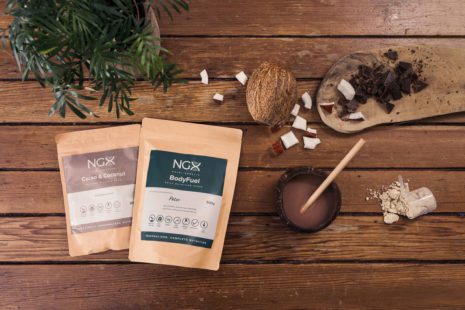Should you be taking a probiotic supplement? And if so, which one? We ask nutritionist Liza Marogy to shed some light on the complex topic…
What are probiotics?
Probiotics are types of live bacteria and some specific strains of yeasts that have been shown to benefit human health, especially our gut health. Also commonly known as ‘friendly’ or ‘good’ bacteria, they can be found naturally in fermented foods and beverages as well as in nutritional supplements.
Why do we need them?
Our gut is home to trillions of bacteria and fungi some of which are beneficial to our health, and others which can be detrimental. Collectively, these organisms are known as the ‘microbiota’ and the microbiota is thought to have an impact on our whole body health – including our immune system – as well as having been linked to a vast range of diseases.
In healthy humans, there is a balance of good to ‘bad’ microbes, but when this equilibrium is not naturally present or disturbed (through illness, poor diet or use of certain medications, for example) long term digestive or systemic health issues can arise. Consuming probiotics through fermented food and drink as well as supplements can be beneficial, as can eating plenty of fibre-rich foods such as fruit, vegetables and whole grains as fibre has been shown to encourage a healthy microbiota.

Should I take a probiotic supplement?
There are some who argue that taking a probiotic daily can be helpful for maintaining a healthy immune system, however, I personally feel that only those with temporary and long-term digestive disturbances and chronic health problems (some strains have been shown to be beneficial in inflammatory skin conditions such as eczema, others in inflammatory bowel disease, or even reducing allergy risk), need to take probiotic supplements regularly.
However, healthy individuals who are travelling abroad, taking certain medications such as antibiotics, or suffer a tummy bug can benefit from a course of probiotics taken for a couple of weeks before and after. Particularly beneficial species in these cases include the non-pathogenic probiotic yeast Saccaromyces boulardii and Lactobacillus rhamnosus GG.
How do I choose the right one for me?
There are many different types of probiotics – and what works brilliantly for one person may not work well for another. For example, those with specific health concerns may do brilliantly on a single-strain probiotic and others may require a multi-strain product. My advice is to use a product that includes a well-researched strain with evidence for use for your specific needs.
Be aware that dosing can be important too – I personally take higher doses of probiotics because I have inflammatory bowel disease, but for those who are taking them to relieve mild gastrointestinal symptoms, a lower dose product could be sufficient.
For individuals who don’t have any particular health concerns and don’t necessarily require supplemental support, I’d recommend regularly eating a wide variety of plant foods and including fermented foods naturally rich in probiotics such as live yoghurt, sauerkraut, pickles or kombucha.

Are there any side effects?
Most people are able to take probiotics without any side effects, however, in the case of high-dose products, I usually recommend that those who have never tried live bacteria products before start off slowly to avoid any adverse effects such as temporary bloating, by opening up the capsule and taking ¼ or ½ the contents mixed in a cold drink or yoghurt for a couple of weeks before increasing the dose.
Probiotic products are deemed safe for most individuals but those who are immunocompromised or on certain types of immunosuppressant drugs may suffer adverse effects and should always check with their doctor before use.
What are your tips for taking probiotic supplements?
Opinion differs on the best time to take probiotics with some suggesting that before bed may be best, though I’m firmly in the traditional camp that believes that it’s best to take live bacteria products in the morning with a cold beverage before breakfast. Taking bacteria late at night could cause bloating which may disturb sleep, so I’m not a fan, but if it works for you, go for it!
I prefer products like our own which are encapsulated in ‘direct release’ capsules as these bypass stomach acid and bile – both of which can destroy probiotics – to deliver the good bugs to your gut where they can be most effective.
Heat damages probiotics, so always check that your product is heat stable and safe to keep at room temperature if you’re planning to do so, and in the event of a heatwave or if travelling to a hot country make sure you keep it in the fridge to avoid damaging the live bacteria. For the same reason, I recommend taking products with cold liquids rather than hot.
Liza Marogy is a nutritionist and founder of clinical supplement company Inessa.
Get your weekly DOSE fix here: SIGN UP FOR OUR NEWSLETTER
















